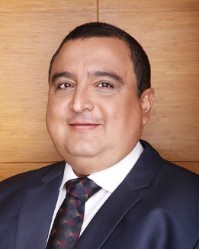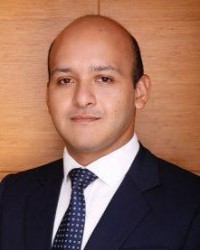International Fraud & Asset Tracing 2025 Comparisons
Contributed By Padilla & Chang
Law and Practice
1. Fraud Claims
1.1 General Characteristics of Fraud Claims
In Peru, fraud crimes are covered by various criminal offences in the Peruvian Criminal Code (PCC) and the Computer Criminal Act, several of which are outlined below.
- Fraud (Articles 196 and 196-A PCC): This crime applies to anyone who obtains illicit financial gain to the detriment of a third party by misleading the victim through deception or other fraudulent means. It carries a prison sentence of between one and six years. Fraud is aggravated when it is committed by simulating procedural fraud, when a blank signature is abused, among other circumstances.
- Illegal Acts Against the Credit System (Article 209 PCC): This crime applies to anyone who, in an insolvency proceeding or other obligation rescheduling procedure, conceals assets, simulates debts, or carries out asset disposal acts to the detriment of creditors, postponing payment for the benefit of creditors, among other circumstances.
- Illegal Suspension of the Debtor’s Obligations (Article 211 PCC): This crime applies to anyone who, in an insolvency or other obligation rescheduling proceeding, secures the suspension of the debtor’s obligations through the use of false information, documentation, or accounting.
- Improper Release (Article 215 PCC): This crime applies to those who issue, transfer, or cash a cheque without sufficient funds or without authorisation to overdraw an account. It also applies where payment is maliciously obstructed by any means, where a cheque is knowingly issued without the possibility of legal payment, revoked on false grounds, endorsed without funds, or when impersonation of the beneficiary or endorsee occurs.
- Computer Fraud (Article 8 Computer Criminal Act): This crime applies to anyone who illegally obtains an illicit profit to the detriment of a third party through any interference or manipulation in the operation of a computer system.
- Extortionate Computer Extensions of Credit (Article 8-A Computer Criminal Act): This crime applies to anyone who, through digital platforms, deceives another person into accepting money or goods, simulating a mutual agreement or any other contract, in order to obtain an unfair sale.
- Corruption Offences: Payment crimes linked to corruption include, among others:
- bribery, which applies to a public servant or individual who solicits, accepts, or offers undue advantages or benefits in exchange for performing or refraining from performing acts linked to their position (Articles 393, 394, 397, and 398-A PCC); and
- private corruption, which applies to a partner, shareholder, manager or administrator, among others, of a company, who accepts any undue advantages for themselves or a third party in exchange for performing or refraining from performing acts that favour another person in the acquisition or sale of goods or merchandise, in the contracting of commercial services, or in business relationships (Article 241-A PCC).
- Fraudulent Administration (Article 198 PCC): This crime applies to anyone who, while performing administrative or representative functions for a company, performs acts detrimental to it, such as concealing the company’s situation from shareholders, and taking out undue loans.
- Illegal Appropriation (Article 190 PCC): This crime applies to a person who, for their own benefit or that of another, misappropriates property that has been entrusted to them with an obligation to return, deliver, or use it for a specific purpose.
- Conspiracy to commit fraud is not punishable in Peru.
1.2 Causes of Action After Receipt of a Bribe
If a company representative or employee has received a bribe from a third party, they will have committed the crime of private corruption. Specifically, this applies to partners, shareholders, managers, directors, administrators, legal representatives, attorneys-in-fact, employees, or advisers of a private legal entity that receive a donation in exchange for performing or refraining from performing acts that favour others in any business relationship.
Consequently, a criminal investigation may be initiated against such individuals through a complaint filed either by the affected company or by third parties. The investigation may also commence ex officio at the discretion of the Prosecutor’s Office, without requiring a formal complaint.
1.3 Claims Against Parties Who Assist or Facilitate Fraudulent Acts
Anyone who co-operates with the perpetrator of a crime of fraud is considered an accomplice. The types of accomplices are outlined in Articles 24 and 25 of the PCC. The instigator, who induces the perpetrator to commit the crime, receives the same penalty as the perpetrator. The primary accomplice, who provides essential cooperation for the commission of the crime, is likewise punished with the same penalty as the perpetrator. The secondary accomplice, who offers non-essential assistance to the perpetrator, receives a reduced penalty.
Separately, any person who collaborates by receiving assets obtained through fraud may be prosecuted for the crime of handling stolen goods (Article 194 PCC), which applies to anyone who acquires, receives as a gift, keeps, or displays, among other things, assets known or presumed to have a criminal origin.
Likewise, Legislative Decree 1106 for the Effective Fight Against Money Laundering and Other Crimes Related to Illegal Mining and Organised Crime establishes the crimes relating to money laundering and prohibits the acquisition, keeping, management, receipt, and concealment, among other things, of money, effects, or profits known or presumed to have an illicit origin.
1.4 Limitation Periods
A crime may be prosecuted from the date of commission until the maximum statutory sentence specified for that crime in the PCC, with an additional half of that period in certain cases under Article 80 PCC.
For example, fraud carries a maximum prison sentence of six years, allowing the state to prosecute for up to nine years.
When a single act constitutes two separate crimes, the limitation period will correspond to the more serious crime.
1.5 Proprietary Claims Against Property
A victim whose property has been misappropriated or transferred as a result of fraud may seek restitution either through civil proceedings, by filing a claim for damages before a civil court, or within the criminal proceedings, by participating as a civil plaintiff. In the latter case, the criminal court may, upon conviction, order compensation not only for pecuniary loss but also for non-pecuniary harm, provided it is duly substantiated.
Furthermore, any asset derived from the commission of fraud, or used in its execution, is subject to precautionary seizure during the criminal proceedings and subsequent confiscation by the state upon conviction. However, bona fide third-party owners of seized assets who have not participated in the crime may request judicial review of the measure to reclaim their property.
1.6 Rules of Pre-Action Conduct
Article 2 of the Peruvian Criminal Procedure Code (PCPC) states that the Prosecutor’s Office may refrain from criminally prosecuting those who commit crimes that carry a maximum penalty of four years or less in prison, provided that it is clear that there is no public interest in doing so. To apply this provision, the person who committed the crime must repair the damage caused by their conduct or, at at a minimum, reach written agreement with the victim regarding such reparation.
1.7 Prevention of Defendants Dissipating or Secreting Assets
If the accused’s assets are not linked to the commission of the crime, the Prosecutor’s Office may request the judge to impose a precautionary measure of seizure (Article 303 PCPC) or a restraining order (Article 310 PCPC) to ensure the effectiveness of future compensation for the victim. Such compensation will be issued upon issuance of the sentence, following the conclusion of the criminal proceedings. Both the seizure and the restraining order may also be requested directly from the judge by the victim, provided that they are a party to the proceedings.
If the measure is requested within a criminal proceeding, no court fees will be paid. If the measure is requested within a civil proceeding, since the victim has not been constituted as a party in the criminal proceeding, they will pay a fee that may range from USD150 to USD2,500.
It should be noted that the Peruvian Financial Intelligence Unit may also order the freezing of funds linked to the crime of money laundering, after which the criminal judge must be notified within 24 hours of the measure being ordered, in order to validate it (Article 3 of Law 27693).
If the defendant attempts to destroy or conceal his or her assets to avoid future payment of civil damages, he or she will commit the crime of unlawful acts (Article 209 PCC), which applies to any debtor who conceals assets, simulates debts, or performs any act of asset disposition intended to pay one or more creditors.
Finally, if the precautionary measure of seizure is not respected, the person will commit the crime of disobedience to authority (Article 368 PCC).
2. Procedures and Trials
2.1 Disclosure of Defendants’ Assets
In criminal proceedings, the Prosecutor’s Office has the power to investigate the accused’s free assets or seizable rights in order to ensure that his or her financial liability arising from the crime is effectively enforced (Article 302 PCPC). If the accused fails to comply with the required information, he or she will be committing the crime of disobedience to authority (Article 368 PCC).
2.2 Preserving Evidence
During a criminal investigation, the Prosecutor’s Office may request the court to compulsorily produce or seize property that constitutes evidence of the crime, is related to it, or is necessary to clarify the facts under investigation. Once the court authorises this, the Prosecutor’s Office will carry out the procedure with police assistance. The authoritative resolution issued by the court will specify the name of the prosecutor authorised to carry out the procedure and the property to be seized or produced. Upon executing the procedure, the seized property will be accurately registered and identified, and security mechanisms will be established to prevent its original condition from being altered. Likewise, the person responsible for its proper preservation or custody will be designated (Articles 218, 219, and 220 PCPC).
2.3 Obtaining Disclosure of Documents and Evidence From Third Parties
As with the accused, the Prosecutor’s Office has the power to request the co-operation of third parties to advance the criminal investigation. Since these third parties are considered witnesses, they are obligated to co-operate with the Prosecutor’s Office. Failure to do so constitutes a crime of refusal to co-operate with the administration of justice (Article 371 PCC) or, alternatively, of disobedience to authority (Article 368 PCC). If they are found to be concealing evidence, they will be committing the crime of active concealment (Article 405 PCC).
2.4 Procedural Orders
Precautionary measures of seizure are not communicated to the accused before being ordered, as their effectiveness depends on confidentiality. The request is submitted directly to the court, which rules on whether or not to grant the measure without notifying the accused in advance. The same approach applies to the custody of assets linked to the offence, where such assets may be secured as evidence in the proceedings.
2.5 Criminal Redress
Victims of fraud may become a party to the criminal case by submitting a request to the court to be recognised as a civil plaintiff (a party seeking compensation for the damages caused by the crime). The procedure for this is regulated in Article 100 PCPC. Once admitted as a civil plaintiff, they may participate in the criminal case like any other party, providing evidence, making requests, among other things. Furthermore, once the Prosecutor’s Office files its formal charges before the judge, the civil plaintiff will present their claim for compensation.
It should be noted that the person harmed by the crime may request compensation through both criminal and civil proceedings. However, once they opt for one of the two, they cannot request compensation through the other (Article 12.1 PCPC). If the victim opts for criminal proceedings, he or she may withdraw his or her claim before the start of the intermediate stage of the process, which will not affect his or her right to pursue civil proceedings.
2.6 Judgment Without Trial
A sentence can be obtained without a trial in two circumstances. The first is a special criminal process known as “early termination”. Through this process, before the criminal judge issues the ruling ordering the start of the oral trial, both the Prosecutor’s Office and the accused may request a hearing in which the accused admits criminal liability and both parties reach an agreement on the penalty and civil compensation to be paid. Once this agreement is reached, it will be declared before the judge, after which the judge will issue the early sentence (Article 468 PCPC).
Secondly, there is “early conclusion”. This can occur once the trial begins, at which time the judge will ask the accused whether or not he or she admits responsibility for the crime of which he or she is accused. If the accused answers affirmatively, the judge will declare the trial concluded. After that, a sentence will be issued (Article 372 PCPC).
2.7 Rules for Pleading Fraud
The Supreme Court has established through its jurisprudence (Cassation Plenary Sentence 1-2017) that for the criminal process to be maintained and developed through its various stages, the Prosecutor’s Office and, eventually, the court, must reach a certain level of conviction regarding the criminal liability of the accused. To achieve this, sufficient evidence of the commission of the crime of fraud is necessary. Otherwise, the Prosecutor’s Office (Article 334 PCPC) or the court (Article 345 PCPC), depending on the stage of the process, will dismiss the case.
2.8 Claims Against “Unknown” Fraudsters
A criminal complaint may be filed against unknown fraudulent individuals. During the investigation conducted by the Prosecutor’s Office, the identity of these individuals will be determined. If their identities cannot be established, the case will be dismissed.
2.9 Compelling Witnesses to Give Evidence
Witnesses summoned to testify and provide evidence are obligated to do so. If they fail to do so, they may be compelled to appear by force (Article 164.3 PCPC) and may also face prosecution for the crimes of refusal to co-operate with the administration of justice (Article 371 PCC) and disobedience to authority (Article 368 PCC).
Only the spouse of the accused, their relatives up to the fourth degree of consanguinity or second degree of affinity, and any person in a cohabitation relationship with them may refuse to co-operate with the proceedings (Article 165.1 PCPC).
3. Corporate Entities, Ultimate Beneficial Owners and Shareholders
3.1 Imposing Liability for Fraud on to a Corporate Entity
In Peru, as a rule, only natural persons are criminally liable. Exceptionally, companies may be criminally prosecuted and sanctioned for the commission of specific crimes. Of those previously mentioned, companies may only be held liable for bribery and money laundering (Law 31740). Based on the provisions of Article 3 of the law, criminal proceedings may be initiated against companies that have benefitted, directly or indirectly, from the crimes indicated in said law (and provided that the crimes were committed in their name or on their behalf). This liability is independent of the criminal liability of the natural person. Only companies that have previously adopted a prevention model may be exempt from liability for the commission of crimes.
On the other hand, if a legal entity has been used to commit a crime not provided for by law, additional consequences may be applied (Article 105 PCC), which will always be established in a conviction that declares a natural person criminally responsible.
3.2 Claims Against Ultimate Beneficial Owners
Criminal liability always attaches to the natural person who committed the offence. If a person merely benefitted from the act but did not perpetrate it, they may still be punished as an accomplice, provided another natural person is identified as the perpetrator. It should be noted that, even where a legal entity is prosecuted, its liability is always derived from the conduct of a natural person (Article 3 Law 31740).
3.3 Shareholders’ Claims Against Fraudulent Directors
Those who have committed a crime of fraud in their role as directors of a company may be prosecuted by the company’s shareholders for the crime of fraud in the administration of legal entities (Article 198 PCC).
4. Overseas Parties in Fraud Claims
4.1 Joining Overseas Parties to Fraud Claims
Peru exercises its jurisdiction within Peruvian territory. In addition, it also exercises jurisdiction over crimes committed abroad when (Article 2 PCC):
- the perpetrator of the crime is a public servant;
- the crime threatens public safety;
- the crime involves money laundering that produces effects in Peru;
- the crime causes harm to the state;
- the crime is committed against or by a Peruvian citizen and is extraditable under Peruvian law, provided that it is also a crime in the state where it was committed; and
- Peru is obliged to prosecute in accordance with international treaties.
4.2 Service of Proceedings out of the Jurisdiction
For Peru to prosecute a person who has committed a crime abroad, extradition proceedings must be initiated (Articles 513 et seq. PCC).
5. Enforcement
5.1 Methods of Enforcement
A conviction will be executed by the court that issued it and will be carried out in accordance with the provisions of the Criminal Enforcement Code.
5.2 Enforcement of Foreign Judgments
A foreign criminal sentence may be enforced in Peru through exequatur, which is the process for recognising judicial decisions issued abroad. The procedure for this will depend on the bilateral agreements between Peru and the country that issued the sentence. Although exequatur is recognised in the Civil Code (Article 2102 et seq.) and not in the PCC, Article IX of the Preliminary Title of the Code of Civil Procedure expressly states that the provisions of the Civil Code apply subsidiarily to legal relationships and situations regulated by other laws, provided they are not incompatible with their nature.
6. Privileges
6.1 Invoking the Privilege Against Self-Incrimination
The right to remain silent and to avoid self-incrimination is a manifestation of the right to defence, recognised in Article 139.14 of the Constitution of Peru. Likewise, Article IX. 2 of the Preliminary Title of the PCPC states that no one may be forced or induced to testify or admit guilt against themselves. Accordingly, the accused is not obligated to testify or provide evidence of self-incrimination at any stage of the proceedings, nor may this be used against them or considered an act of obstruction of justice.
6.2 Undermining the Privilege Over Communications Exempt From Discovery or Disclosure
Attorney-client privilege is protected by the Lawyer’s Code of Ethics (Article 30 et seq.), which establishes a lawyer’s duty of confidentiality regarding all information received from their clients, regardless of the medium through which it is communicated. The only circumstance in which this privilege will be waived is when the information protected by professional secrecy may cause serious harm to the physical or psychological integrity or life of a person.
7. Special Rules and Laws
7.1 Rules for Claiming Punitive or Exemplary Damages
The Peruvian legal system does not allow the possibility of claiming punitive damages. This would violate the principle of legality, which establishes that any sanction must be provided for by law in order to be applied in a specific case.
7.2 Laws to Protect “Banking Secrecy”
Bank secrecy is protected by Article 140 of Law 26702. Article 143 of the same law establishes the circumstances under which the release of information on bank accounts is allowed. Two of these circumstances are when the information is requested by judges and courts in the regular exercise of their functions and in a specific proceeding, or when the information is requested by the Attorney General’s Office or the government of a country with which the court has an agreement to combat drug trafficking or terrorism crimes, or when it involves suspected money laundering. Likewise, the PCPC establishes the lifting of bank secrecy as a precautionary measure that may be requested by the Attorney General’s Office and issued confidentially by the judge within the framework of criminal proceedings, provided it is necessary and pertinent to clarify the facts under investigation (Article 235 PCPC).
7.3 Crypto-Assets
In Peru, crypto-assets are considered movable property, as defined in Article 10 of the Civil Code. Therefore, they are also considered property for criminal purposes and can be used to commit crimes, including fraud and money laundering. Therefore, in principle, these assets may be frozen, as well as subject to precautionary measures. This is without prejudice to the regulations that remain to be implemented in that regard within our legal system.
Padilla & Chang
Jose Pardo Avenue
434. Miraflores District
Lima
15074
Peru
+51 997589206
contacto@padillachang.com padillachang.com



